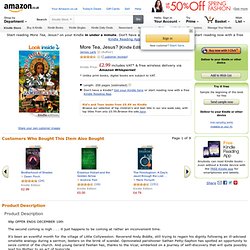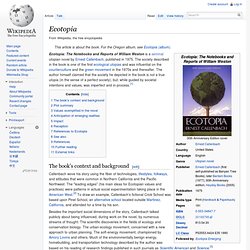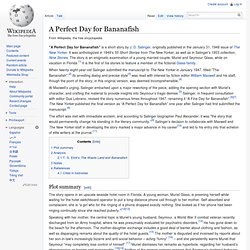

The Diamond Age. More Tea, Jesus? eBook: James Lark: Amazon.co.uk: Kindle Store. Product Description 99p OFFER ENDS DECEMBER 10th The second coming is nigh . . . it just happens to be coming at rather an inconvenient time.

It’s been an eventful month for the village of Little Collyweston: Reverend Andy Biddle, still trying to regain his dignity following an ill-advised omelette analogy during a sermon, teeters on the brink of scandal. Opinionated parishioner Sathan Petty-Saphon has spotted an opportunity to seize control of the church. And young Gerard Feehan has, thanks to the Vicar, embarked on a journey of self-discovery that will quite possibly lead his Mother to an act of homicide. It’s hardly surprising that no one has noticed that the new attendant at their church services is Jesus.
Ecotopia. Ecotopia: The Notebooks and Reports of William Weston is a seminal utopian novel by Ernest Callenbach, published in 1975.

The society described in the book is one of the first ecological utopias and was influential on the counterculture and the green movement in the 1970s and thereafter. The author himself claimed that the society he depicted in the book is not a true utopia (in the sense of a perfect society), but, while guided by societal intentions and values, was imperfect and in-process.[1] The book's context and background[edit] Besides the important social dimensions of the story, Callenbach talked publicly about being influenced, during work on the novel, by numerous streams of thought: The scientific discoveries in the fields of ecology and conservation biology.
The urban-ecology movement, concerned with a new approach to urban planning. The term "ecotopian fiction", as a sub-genre of science fiction and utopian fiction, makes implicit reference to this book. Plot summary[edit] The Story of Edgar Sawtelle: A Novel (P.S.): David Wroblewski: 9780061374234: Amazon.com. The End of Poverty: Economic Possibilities for Our Time - Jeffrey Sachs. A Perfect Day for Bananafish. When twenty-eight-year-old Salinger submitted the manuscript to The New Yorker in January 1947, titled "The Bananafish",[2] its arresting dialog and precise style[3] was read with interest by fiction editor William Maxwell and his staff, though the point of the story, in this original version, was deemed incomprehensible.[4] At Maxwell’s urging, Salinger embarked upon a major reworking of the piece, adding the opening section with Muriel’s character, and crafting the material to provide insights into Seymour’s tragic demise.[5] Salinger, in frequent consultation with editor Gus Lobrano, revised the story numerous times throughout 1947, renaming it “A Fine Day for Bananafish”.[6][7] The New Yorker published the final version as “A Perfect Day for Bananafish” one year after Salinger had first submitted the manuscript.[8] Plot summary[edit] The story opens in an upscale seaside hotel room in Florida.

The scene switches to the beachfront area reserved for hotel clientele. Analysis[edit] T. In Search of Midnight: The Mike McGee Handbook of Awesome (9780982148822): Mike McGee. Tarantula: Poems (9780312105549): Bob Dylan. Spirit and the Flesh: Sexual Diversity in American Indian Culture. Spirit and the Flesh: Sexual Diversity in American Indian Culture. Guns, Germs, and Steel. Guns, Germs, and Steel: The Fates of Human Societies is a 1997 transdisciplinary nonfiction book by Jared Diamond, professor of geography and physiology at the University of California, Los Angeles (UCLA). In 1998, it won the Pulitzer Prize for general non-fiction and the Aventis Prize for Best Science Book. A documentary based on the book, and produced by the National Geographic Society, was broadcast on PBS in July 2005.[1] Diamond argues that the gaps in power and technology between human societies originate in environmental differences, which are amplified by various positive feedback loops.
When cultural or genetic differences have favored Eurasians (for example, written language or the development among Eurasians of resistance to endemic diseases), he asserts that these advantages occurred because of the influence of geography on societies and cultures, and were not inherent in the Eurasian genomes. Synopsis[edit] Title[edit] Amazon.co.uk: Low Prices in Electronics, Books, Sports Equipment & more.